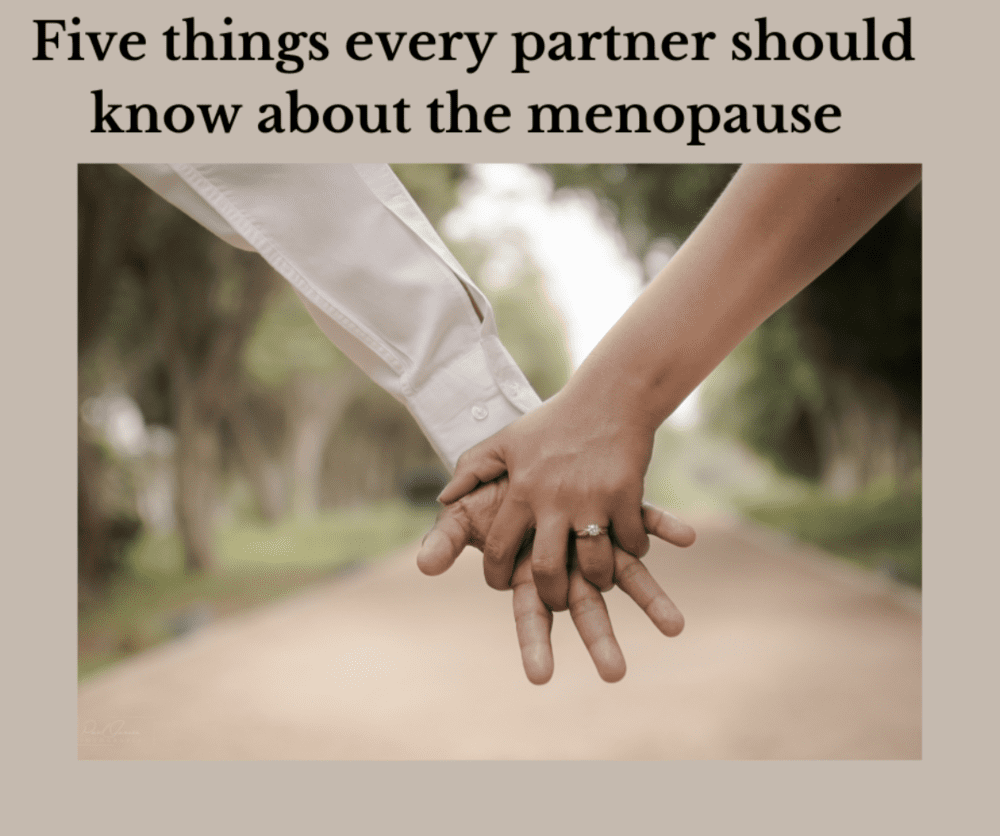

Understanding and being informed about menopause and anxiety
It is not just something you ‘go through’. Every woman and experience is different. Just because “Frank at work’s partner Jane is sailing through with no problems”, doesn’t mean that your partner is not experiencing every single symptom. There are around 34 associated symptoms of menopause and it can impact women both physically and mentally. The woman’s decline of sex hormones (Oestrogen, Progesterone and Testosterone) is completely different than in men’s. Men, for example, will not experience hormones dropping to zero. As a male or female partner that has not yet experienced menopause, it is vital to understand the physiology.
Hot flushes
Our internal thermostats are super sensitive. This means that one minute we can be on fire and wearing a vest in the snow and the next freezing cold with seven blankets. Drinking a cup of tea can cause our faulty thermostats to send us to an all-time high, sometimes it just does it all on its own. We have to think carefully about what we are wearing in case of hot flushes layering becomes everything! If we ask continuously ‘is it hot in here?’ be patient and ask her what she needs. Nighttime sweats affect our sleep and if she needs the window open ALL night, be understanding.
Sex
Every cell in our bodies require oestrogen, when we are experiencing menopause, essential hormone like oestrogen decline. This affects every aspect of our body and brain. Having less natural lubrication can lead to painful and inflamed intimate tissues and pain during sex that once wasn’t there. Sex drive can decline and for some, penetrating sex can be painful due to virginal atrophy. Lack of sex drive is a physiological symptom and this is not because she no longer loves or finds you attractive, it is hormone changes. Women become nervous to even hug their partners in case this is a sign to initiate sex, this in turn can take away all affectation. Be kind and patient. Communication and respect are key. Keep talking.
Menopause and anxiety – how does it affect her mood?
We can become irritable – this is due to hormones, the decline of oestrogen, progesterone and testosterone influencing our brains. This affects our mood, memories and patience! The resulting imbalance of lower chemicals such as serotonin and endorphins – and increased ones such as cortisol and adrenaline. Women are generally people pleasers and organisers, so step in and be supportive. If she needs more support, help her to find useful resources. All of this can make us irritable and anxious. Validate her feelings.
Our bodies
Our bodies will change with menopause. Skin becomes dryer, we can lose hair. We can put weight on around our middle. Some are exhausted and turn to negative and unhelpful behaviours to comfort themselves.
Along with the physical changes, women may face difficulties in coming to terms with a loss of fertility and ageing. Women who have had fertility issues may experience this particularly acutely, even women who are happily childfree or who don’t wish to have any more children may have to adjust to their changing bodies. Remind them how amazing their bodies are and what they have achieved already. It is not helpful to say ‘it’s just your hormones’ which can be dismissive, understand the physiology and validate her feelings. Be supportive rather than critical. Find ways to exercise together. Most importantly, make her feel beautiful to combat menopause and anxiety.
Is your partner struggling with menopause and anxiety? Get in touch with Donna Morgan for counselling today.


